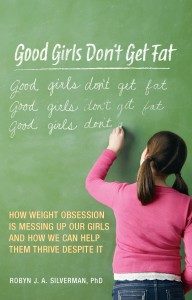7 Lessons The Life of Steve Jobs Can Teach Children (and Parents)
 Steve Jobs, innovator, inventor, and game-changer died yesterday at the age of 56 from pancreatic cancer. The news of his death, while bringing on mourning of an amazing thinker, prompted those who revered and respected him to focus on his noteworthy influence on the current way we live, work, and enjoy entertainment. It got me thinking. What can our children learn—and how can our parenting be influenced—from looking at the contributions and life path of Steve Jobs?
Steve Jobs, innovator, inventor, and game-changer died yesterday at the age of 56 from pancreatic cancer. The news of his death, while bringing on mourning of an amazing thinker, prompted those who revered and respected him to focus on his noteworthy influence on the current way we live, work, and enjoy entertainment. It got me thinking. What can our children learn—and how can our parenting be influenced—from looking at the contributions and life path of Steve Jobs?
- Enjoy what you do: Steve Jobs talked about how important it is to enjoy the work you do—and if you don’t like the work you are doing, to keep searching for what you love. As children, we all have things we have to do but there is always time to concentrate on what you love as well. What is it? Don’t do something simply because your friend does it, all the kids in the area do it, your brother or sister did it, or your parents played it or participated in it as a child. As parents, that means, we need to step back and allow our children’s passion to emerge rather than forcing them to commit to something because of an outside reason. Support them in trying different things and then, allow them to choose based on what they love.
- Encourage experimentation and creativity: No one can argue that Steve Jobs wasn’t a master at creativity. He invented something that simply didn’t exist before. What does that say to our children? Childhood is a time of exploration. There are such small risks—no one will dock your pay if your invention fails to work as planned, you will not be fired, tossed out on the street, or cut off from your family if you spend a few hours digging in the dirt, taking an old clock radio apart, or walking in the woods pretending you are on an animal safari. In fact, you may just discover something amazing. As a parent, that means, allow your children to feel, think, take things apart, put them back together, or make something completely different from the materials. Let them believe that there are no wrong answers, just undiscovered ones. They may just figure something out that will bowl you over.
- All paths are not conventional: After careful thought and introspection, Steve Jobs dropped out of college. He expressed that he didn’t know what he wanted to do with his life. Then he started taking classes that excited him. He tells a story about taking a typography class that, while unknown at the time, influenced the various fonts that Apple provided a few years later when the personal computer was invented…in his garage. Childhood is not a paint by numbers experience. I’m not saying that people should drop out of school, hole up in the garage and see what happens. That would be a ridiculous interpretation. What I’m saying is that children need to take healthy risks based on insightful thought. What are they doing simply because it is the path usually taken and what are they doing because it is the right path for them? As parents, that means we need to ask ourselves what’s best for our specific child. It takes strength and faith. That may mean having your child participate in a different kind of school, activity, trip, retreat, or experience. It may mean asking your child to spend time setting goals and envisioning what s/he really wants. It most definitely means we need to listen–really listen–to what they have to say.
- Everyone has the capacity to change the world: Steve Jobs was adopted by parents who hadn’t gone to college, weren’t well off, and weren’t what someone would call “connected” to high-powered people. What does that mean for our children? There is no excuse not to achieve your personal greatness. Everyone has gifts to share but they must cultivate them and go for it. As parents, that means, we need to see our children in terms of their assets rather than their deficits. So many of parents compare, contrast, and wonder why their child falls short of a standard set by the neighbor’s son, their cousin’s daughter, or the fictitious ideal child set in the minds of the family. When we do that, we fail to see the child who stands before us. What is your child passionate about? What are his gifts? How can you help to ignite the S.P.A.R.K. within him so he can truly shine?
- There is success in failure: When Steve Jobs was fired from Apple, he bought Pixar and made a huge splash with the mega-hits Toy Story and Finding Nemo. Animation techniques changed, story telling was revamped, and the movie industry was forever changed. Our children need to learn that when they don’t make the team, don’t get the part in the play, or are even painfully cast out by a former friend, it may be just the thing that provides the space for greatness. When I was in college, I didn’t get into a singing group I auditioned for—and I was really upset. I found out that had I gotten in, I wouldn’t have been able to spend my Junior year abroad at my dream school, Oxford University in England. That year abroad changed my perspective as much as it changed my life. There is success in failure. As parents, it means that we need to help our children find the silver lining when things don’t go as planned. We need to model being optimistic and hopeful that success comes with trying and failure is one more step towards success. We need to point out when a gift or opportunity comes along because a previous failure made room for it.
- What goes around comes around: In 1996, Apple bought NeXt, and in an amazing twist of fate, Steve Jobs wound up back at Apple, helping the then struggling company come back to life. Having left feeling embarrassed and stripped, he returned wiser and refreshed. His innovation meant the creation of the Ipod a few years later, and Apple was back in the game with a vengeance. What can our children learn from this? They can learn that goodbye doesn’t always mean goodbye forever and that a break from what you always do may mean an opportunity for growth. Hiatus from a relationship can allow perspective. Submerging yourself in new responsibilities can be freeing. Learning something new can revitalize and rejuvenate. As parents, that means that there are times to ensure your child’s commitment and there are times when a break from the norm may be the best parenting choice you can make. Time away doesn’t need to be seen as a time of interruption but rather, room for innovation.
- You never know: When Steve Jobs invented the personal computer, it hadn’t been done before. When Toy Story came out, the animation was the first of its kind. Nothing like the Ipod was ever seen previously. We must teach our children that doing the same things everyone else does, copying other people’s work, and following in someone else’s footsteps, is not the answer to discovering one’s own gifts. There is value in mentorship, internship, practice, and skill acquisition, of course, but don’t be afraid to do something nobody ever did because that is how inventions are created. As parents, that means, encourage healthy risks and don’t criticize when your child’s quirks lead him on an unexpected journey (as long as its done safely and with character). Imagine what would have happened to so many great inventions if those in the lives of those creative people continually downplayed their gifts, their ideas, and the value of their path. We need more inventors—more girls, boys, women and men, thinking about what is possible rather than what is logical and practical. You just never know what they’ll come up with when they are given the freedom to try.
As I sit here and write this article on my Apple MacBook Pro, I send out my appreciation to the life and innovations of Steve Jobs. But his life is so much more than the vehicle for creation. It is a testament to what can happen when we let creativity, curiosity, and love for our passion lead us down our path…living each day as if it were our last, until it is.
In gratitude,


 It’s been a year since the launch of
It’s been a year since the launch of